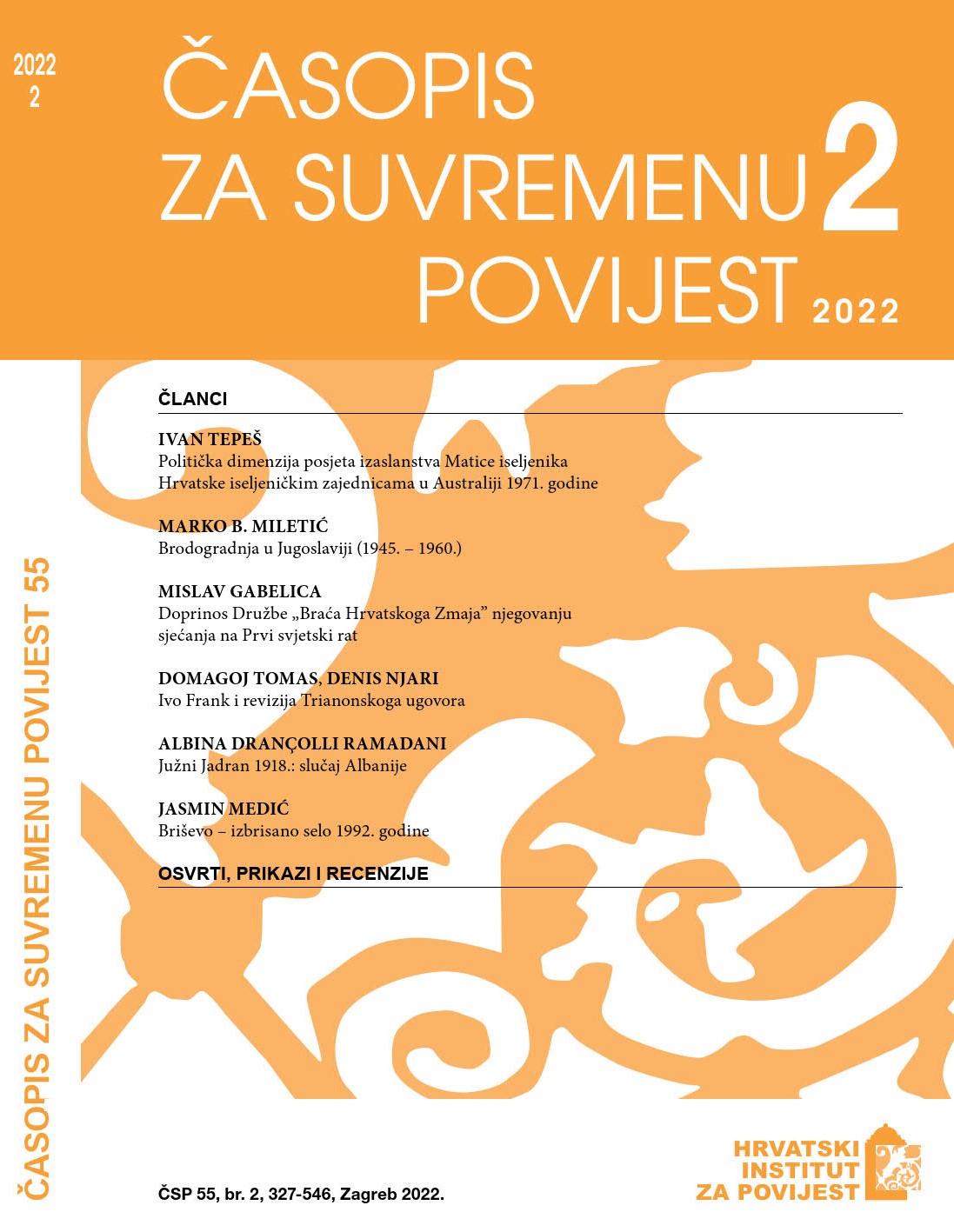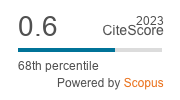The Political Dimension of the Croatian Heritage Foundation’s Delegation to Croatian Expatriate Communities in Australia in 1971
DOI:
https://doi.org/10.22586/csp.v54i2.21454Keywords:
expatriates; Croatian Heritage Foundation; Australia; Yugoslavia; political emigration; differentiation processAbstract
This paper analyses the political background of the departure of the Croatian Heritage Foundation’s (CHF) delegation to Australia in summer 1971, i.e. the political reasons behind it and the purpose of the visit. Believing their influence among the expatriates to be great, the CHF decided to use an opportune moment of political divisions among the expatriates in order to neutralise the influence of the political émigrés among the expatriates while simultaneously attempting to gain the support of most expatriates for building closer ties with the homeland and accepting its socialist social-political system. The political divisions among the expatriates, the so-called differentiation process, was a consequence of political differences among the émigrés themselves, the arrival of new expatriates, and the positive influence of political movements in Croatia during the Croatian Spring. This process was particularly prominent in Australia, which was also seen as a bastion of reactionary expatriates, strongly influenced by Croatian political émigrés. The CHF delegation’s journey was planned in agreement with political factors from the Socialist Republic of Croatia. The tenets of the Tenth Session of the Central Committee of the League of Communists of Croatia and the climate of the Croatian Spring—which included a strengthening of Croatian identity at the expense of Yugoslav identity among expatriates—served as their political milestones. The Football Federation of Croatia worked with the CHF in Croatia, while the managements of the football clubs ‘Croatia’, Croatian associations that split off from Croatian Halls owned by political émigrés, Committees of the Croatian Cancer League, the ‘Croatian Youth’ organisation, and parts of the clergy and the pro-Yugoslav émigrés who were ready to work with the rest of the Croatian expatriates were all seen as potential collaborators. The Yugoslav diplomatic missions and consular posts were seen as the factors that should spearhead the differentiation process, but were also considered problematic because Croats were under-represented in them, because they denied the existence of the differentiation process, because they opposed the concentration of expatriates on a national basis, and because they spread the claim that the Croatian émigrés were extremists on the Australian public scene. The main opposition to this process offered by the Croatian political émigrés, who were allied to the Australian conservative government from the moment they arrived in the country. Expatriates unburdened by politics received the delegation well, while the political émigrés viewed it negatively, interpreting its visit as an exclusively political move and casting doubt on its publicly stated goal, which was claimed to be exclusively to expand social and cultural ties. With the change of the political circumstances after the suppression of the Croatian Spring in Karađorđevo, the differentiation process was halted, while the delegation members found themselves subject to much criticism due to their activities in Australia, though they did not suffer any far-reaching political consequences.
Downloads
Published
How to Cite
Issue
Section
License
Copyright (c) 2022 authors and journal

This work is licensed under a Creative Commons Attribution-NonCommercial 4.0 International License.
Copyright holders are the publisher Croatian Institute of History and the authors. Journal of Contemporary History is an Open Access journal. Users are allowed to read, download, copy, redistribute, print, search and link to material, and alter, transform, or build upon the material, or use them for any other lawful purpose as long as they attribute the source in an appropriate manner according to the Creative Commons licence CC BY-NC. The papers published in Journal of Contemporary History can be deposited and self-archived in the institutional and thematic repositories providing the link to the journal's web pages and HRČAK. Journal does not charge article processing charges (APC). The editors assume no responsibility for statements of fact or opinion made by contributors.




